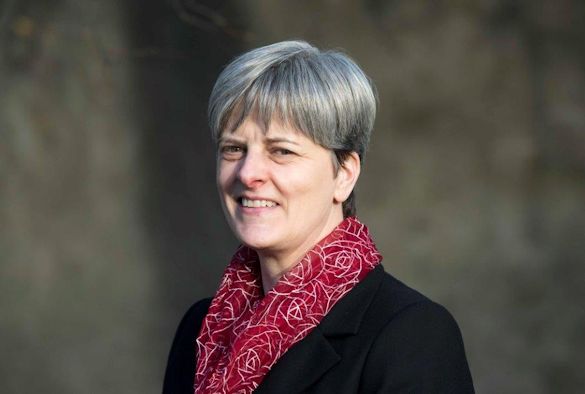
Professor Fiona Beveridge, Pro-Vice-Chancellor for the Faculty of Humanities and Social Sciences and Chair of the University’s Race Equality Charter Self-Assessment Team, reflects on a recent presentation on the challenges facing Black academics.
“People need a sense and place of belonging to thrive.”
It’s a simple statement but also a powerful reminder that universities are not yet providing the environment or conditions where Black students and staff can succeed without facing barriers to that success.
These words above – spoken by the founder of Race and Education All-Party Parliamentary Group, L’myah Sherae, at a recent presentation on Barriers to Black Academia – remind me of how far we have to go in our journey to eliminate racial inequalities in higher education. But they also fill me with a passion and determination for the work we’re already doing to reduce disparities.
Findings
L’myah is a co-author of two reports examining barriers faced by Black academics in the UK. These are reports that we have co-sponsored, alongside the University of Bristol. Last week L’myah, alongside her fellow authors/editors Malik Al Nasir, Rebecca Loy, Rhiannon Jones and Dr Leona Vaughn, joined SLT, alongside other senior leaders and the REC SAT Team, to discuss their findings and headline recommendations, following months of research into the racial disparities and barriers Black scholars face in progressing at higher education institutions.
What the authors have identified are deep-rooted issues with higher education policies and/or culture, which are leading to disparities including:
- Awards/grades
- Access to funding
- Progression opportunities
Recommendations
The recommendations within these reports – to be published later this year – are widespread and comprehensive and I cannot possibly do them justice here, but they include proposals to review all institutional guidance, policy and frameworks, implement positive action initiatives in our recruitment of academic staff and ensure we are disaggregating and reporting back on our data to identify and address continued disparities in how Black students and staff are developing their HE careers.
What’s next?
The feedback received resonates with the challenges and barriers we have already identified for Black, Asian and minority staff and students, following the surveys we conducted last year as part of the Race Equality Charter (REC) award. I am pleased to say that work is progressing well with our REC application and I am looking forward to sharing the actions and outcomes with you shortly. We will also share details of the specific action we will take in response to the recommendations in the Barriers to Black Academia reports, once SLT has had time to digest the full findings.
Let me close by saying that we are as determined and committed as ever to become a more equal, diverse and inclusive place, a university where everyone feels a sense of belonging – and can truly thrive.
More about the report authors
The Barriers to Black Academia reports – co-sponsored by the University of Liverpool and the University of Bristol – will be published this year.
Report authors are:
- Malik Al Nasir, Author, Poet and PhD candidate at Cambridge
- Rhiannon Jones, PhD candidate at Cambridge
- Rebecca Loy, Diversity and Inclusion Partner at National Museums Liverpool (and PhD candidate at the University of Liverpool)
- L’myah Sherae, founder of Enact Equality and the Race and Education All-Party Parliamentary Group
- Dr Leona Vaughn, Derby Research Fellow at the University of Liverpool, currently on secondment to the United Nations University Centre for Policy Research.